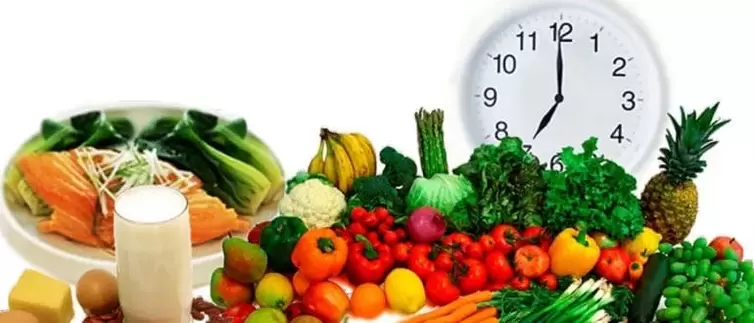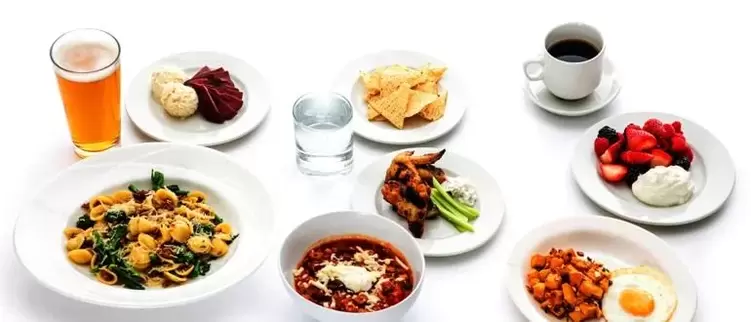
Diet (nutrition) for pancreatitis requires a special approach, since patients need a certain diet aimed at relieving the excess burden on the pancreas. Otherwise, patients immediately feel discomfort from the affected organ - blood sugar levels rise, abdominal pain and nausea may occur. vomiting, fever, etc.
Introduction
The life of a person with pancreatitis seems incredibly difficult at first. Indeed, until recently, his eating habits were completely different, and now you have to control absolutely everything you eat. And the change in the usual diet (five times a day) makes itself felt. Adds a negative connotation and a ban on many products that were addicted to before the illness
Unfortunately, pancreatitis is quite a serious disease, and without a strict diet and constant treatment, people invariably die.
Basic nutritional principles
The diet for pancreatitis should meet the following principles:
Power frequency: if you use portions a little more often than usual, then the work of the digestive system will normalize. The pancreas will begin to get used to a certain time for the production of a secret that will go to digest food, and not digest the gland itself
It should also be noted that with multiple meals, intraductal pressure returns to normal, which means that the risk of sand and stones formation in the ducts of the gland will be significantly reduced.
Fractional nutrition:Do not eat food in large portions. Even if the feeling of hunger is very strong, it is still better to divide it into several tricks. This is necessary so that only the dose for which the enzyme will be produced in adequate quantities enters the digestive tract.
Shredded food: in order to avoid unnecessary provoking situations, the food should be grated - in this case, the gastric mucosa is not irritated and the process of absorption of nutrients is better
Balanced diet: for the balance of nutrients, it is necessary to increase the protein component - this can be done by increasing the amount of dairy, fish and meat products
With an increase in protein in the diet (about 150 grams), it is necessary to reduce the intake of carbohydrates. The body should receive no more than 300 grams of them. per day.
You should pay special attention to sugar and honey, and above all refuse them, since they are leaders in carbohydrate content.
Animal fats are also undesirable in the diet, since they are difficult to digest. The body should receive no more than 80 grams per day.
It is especially worth considering such products as cabbage broths, fish or meat broths - these products increase the production of pancreatic enzymes, which should work as sparingly as possible.
Therapeutic fasting: in cases where the pancreas makes itself felt by pain from the left hypochondrium, then therapeutic fasting is useful - abstaining from any food for a period of about 1-1. 5 days
With an attack of acute pancreatitis, the doctor prescribes rest and abstinence from any food, and after that an individual diet is developed, according to which the patient will eat in the future
Depending on the stage of the disease, such nutrition can be extended, both for several months and for several years.
Approved products
With pancreatitis, you can use: bakery products of the first and second grade, dried crackers
From the first courses, it is best to use light soups cooked in chicken broth. Vegetable and noodle soups, as well as soups with cereals are well suited for this.
For the second, you can use steamed meat dishes - cutlets, rolls, meatballs
Fish is an indispensable component of dietary nutrition, therefore, it must also be consumed boiled or steamed;
It is best to make an omelet from eggs; be sure to use dairy products - cheese, cottage cheese, milk, kefir
When eating fats, the emphasis is on vegetable fats - olive and sunflower oil;
It is necessary to try to eat as much fiber and foods containing micro and macro elements as possible, since it is easily absorbed by the body
The main source of fiber are vegetables - zucchini, pumpkin, beets, carrots, potatoes
An integral storehouse of micro and macronutrients are various cereals. Oatmeal, buckwheat, barley, rice, semolina are especially useful.
From these cereals, you can make cereals in milk. Pasta is not prohibited either.
The diet of a patient with pancreatitis may contain baked fruits - pears, unsweetened apples, etc.
From drinks you can drink rosehip broth, green tea, jelly, dried fruit compote
Contraindications
Diet for pancreatitis imposes certain restrictions on the use of certain foods
With pancreatitis, soups with strong broths, especially meat, fish, cabbage broths, should not be used.
It is not recommended to eat fatty meats and fish;
From vegetables, cabbage, radish, turnip, sorrel, rutabaga, spinach, radish, as well as fried, spicy and sour dishes (sauces, seasonings) are prohibited.
Butter dough and rye bread, ice cream, preserves, sweets, chocolate, juices are contraindicated; alcohol
Diet table

Self-control in nutrition should take a huge place in the patient's life.
In order to better adhere to the diet, it is necessary to draw up a menu for every day. and with a breakdown by reception time
The day should include the following:
- Breakfast
- Lunch
- Dinner
- Afternoon snack
- Dinner
The daily ration should be based on the above principles.
Serving size can be reduced, but preferably not increased
Dishes should be neither hot nor cold - on average +45 - 60 degrees C
Monday
Breakfast: for breakfast, you can eat two white crackers (dry, but not fried; one hundred grams of mashed potatoes; a glass of still mineral water
Lunch: omelet from two eggs; in addition to the omelet - a small steamed cutlet with a slice of white bread. All this is washed down with a glass of milk
Dinner: a small portion (you can buy a bowl for 250 g. ) of soup on light chicken broth, with one slice of white bread; a piece of boiled fish (cod, pike perch) with boiled zucchini for a side dish, a tablespoon of raisins, 1 glass of tomato juice
Afternoon snack: you can eat light meals, as a snack - a glass of jelly or mineral water without gas
Dinner: half a measuring bowl of oatmeal, steamed cutlet, with a slice of white bread, 1 glass of milk tea
Tuesday
Breakfast: oatmeal, a slice of boiled lean beef with a slice of white bread; a glass of still mineral water
Lunch: curd pudding, with a slice of white bread, a couple of tablespoons of applesauce, a glass of green tea
Dinner: a bowl of vegetable soup, a small steamed cutlet; pumpkin porridge, lightly sprinkled with sugar; a slice of bread with cheese; a glass of tea
Afternoon snack: two to three small meatballs, 5 tablespoons of carrot puree and fermented milk yogurt
Dinner: a slice of meatloaf with mashed potatoes; curd pudding and a slice of bread; 1 glass of jelly, or a glass of green tea
Wednesday
Breakfast: an omelet of two eggs with a slice of white bread; 1 glass of milk
Lunch:a piece of boiled fish with buckwheat porridge (small amount); a slice of white bread spread with applesauce; a glass of tea with milk
Dinner: milk pasta - 1 bowl; a slice of meatloaf (steamed) with white bread. For garnish - stewed vegetables; a few steamed dried apricots and slightly sweetened tea
Afternoon snack: a small steamed cutlet with a small amount of boiled rice; a slice of white bread with a glass of kefir;
Dinner: stewed vegetables (zucchini) with potatoes - 1/2 bowl; small meatballs; curd pudding; bread with tea
Thursday
Breakfast: half a bowl of oatmeal in milk, one crouton with weak tea
Lunch: small chicken cutlet with stewed vegetables; a glass of kefir with a slice of bread and a slice of cheese
Dinner: noodle soup cooked in a weak broth; boiled meat and some boiled potatoes; a glass of milk or jelly with bread
Afternoon snack: a slice of boiled fish with vegetables; a slice of bread with applesauce and green tea
Dinner: a piece of (small) boiled meat with rice; a glass of milk with bread, you can broth wild rose
Friday
Breakfast: omelet from two eggs; a glass of jelly with a slice of stale white bread
Lunch: steamed cutlet with vegetables; some raisins or a few pieces of steamed dried apricots; slice of cheese with tea
Dinner: soup in a weak broth, it is possible with potatoes and buckwheat; a piece of boiled low-fat meat with pasta (everything should take no more than half a measuring bowl); fat-free cottage cheese, lightly sprinkled with sugar, a glass of green tea
Afternoon snack: meatball or meatballs with stewed vegetables; a glass of dried fruit compote with bread
Dinner: beet salad (grated beets with apples); steamed cutlet; kefir with bread
Saturday
Breakfast: oatmeal with milk, bread with cheese and tea
Lunch: boiled egg, stewed vegetables and steamed cutlet; curd pudding, raisins with tea and bread
Dinner: soup in a weak broth; boiled fish with potatoes or vegetables; jelly quarter bowl; kefir with bread
Afternoon snack: boiled beef with porridge; a glass of rosehip broth with bread;
Dinner: small cutlet with vegetables; 1 glass of milk, with bread and cheese
Sunday
Breakfast: two-egg omelet, tea and bread with cheese
Lunch: boiled fish or meat with a side dish of stewed vegetables; dried fruit compote with bread
Dinner: soup in a weak broth; 2 small cutlets with pasta; curd pudding with tea
Afternoon snack: porridge with milk with any cereals, raisins or dried apricots; 1 glass of still mineral water
Dinner: steamed cutlet with vegetables; beet salad; jelly or rosehip decoction, a glass of tomato juice
If you have problems with nutrition, you need to contact a nutritionist and correct the table.
Conclusion
Of course, such a menu is very approximate, and does not take into account the individual physiological characteristics of the body.
Considering that allergic reactions to many food products have recently aggravated, you should not trust such a diet 100%
If all the components suit you, then you can try to write down your feelings every day: - is there a feeling of hunger or vice versa - oversaturation, are there any uncomfortable sensations in the stomach (heaviness, bloating, flatulence), is there a deterioration in the state (dizziness, decreased performance, absent-mindedness), mental attitude (the appearance of depression, apathy, a feeling of inferiority)
Such observations will allow you to further adjust your diet and views on your health.













































































